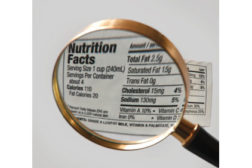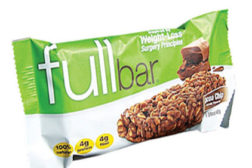Justin J. Prochnow
Justin J. Prochnow is a Shareholder in the Denver office of the international law firm of Greenberg Traurig LLP. His practice concentrates on regulatory and legal issues affecting the food & beverage, dietary supplement and cosmetic industries. He can be reached at (303) 572-6562 or prochnowjj@gtlaw.com. Mr. Prochnow will be the keynote speaker on Day 2 of the Prepared FoodsR&D Applications Seminar Chicago, August 1-2, 2012 at Crowne Plaza Hotel O’Hare. For more information, and to register for the conference, please go to http://www.RDSeminarChicago.com.
ARTICLES
Unlock the Future of Food and Beverage Innovation
Are you a leader in research & development? Stay ahead of the curve with Prepared Foods, the premier source of information and insights for today's trend leaders and taste-makers in food and beverage manufacturing.
JOIN TODAYCopyright ©2025. All Rights Reserved BNP Media.
Design, CMS, Hosting & Web Development :: ePublishing






